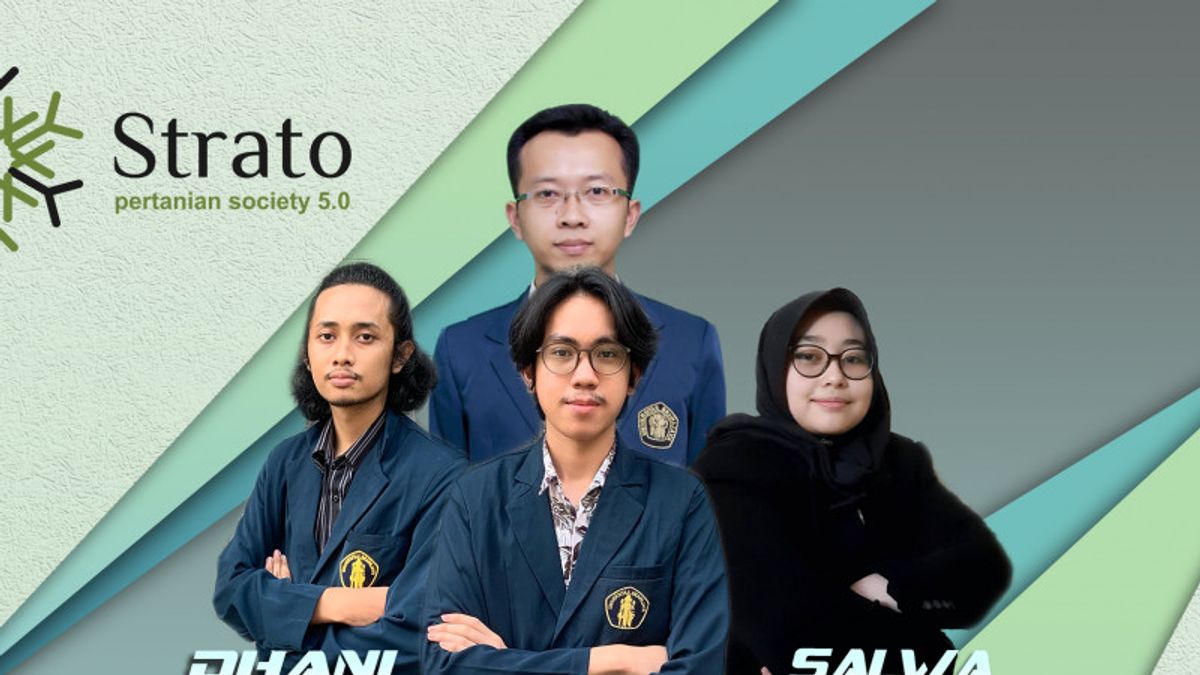JAKARTA - Future agricultural technology has an important meaning for the Indonesian people. As an agricultural nation, making advanced horticultural commodities is very important. Three students of Universitas Brawijaya (UB) answered it by designing agricultural technology that is integrated with robots and based on the Internet of Things (IoT) which is named "STRATO".
"STRATO introduces a futuristic plantation concept with an integrated system that can improve agricultural efficiency, both in terms of technology development and improving the quality of agricultural products," said Team Leader, M Dilan Linoval in Malang, East Java, Sunday.
Dilan explained that STRATO applies the concept of a vertical aeroponic plantation, designed with a plant rack called a plant garden which is equipped with several sensors, such as TDS, Ph sensors, webcam cameras to monitor plants in real-time and determine growth conditions and plant sizes with precision.
In addition, he said, STRATO is also equipped with a central controller room that functions as an electronic box containing microcontroller components to execute automatic controls directly on plant racks.
According to him, this tool already has an automatic plant mobilization system known as a distributor robot, consisting of elevators and delivery robots. Lighting on STRATO uses RGB LEDs that have been programmed to match the wavelength of light and the period of plant growth.
STRATO provides automatic plant nutrition using a mist maker that produces very small water particles, so that they are more easily absorbed by the roots and stems of the cultivated plants.
He admitted that the STRATO design was motivated because the agricultural sector, especially horticultural commodities, is one of the fundamental sectors in improving the national economy and the survival of the community.
Production of agricultural products derived from horticultural commodities grew by 7.85 percent in 2020.
"Looking at the population growth in the world which continues to increase every year, the need for horticultural food will also increase. This makes the agricultural sector opportunities wider and can have a very large influence on the economy in Indonesia," he said.
However, the management of horticultural agriculture in Indonesia is still traditional and the use of technology in plant cultivation is still relatively minimal.
In addition, agricultural land continues to experience instability every year. "Therefore, we offer a solution that can not only solve the problem of the agricultural land deficit, but can be a future technological innovation," said Dilan.
Besides Dilan, the STRATO design is also done by other UB Electrical Engineering (FT) and Biotechnology (FTP) students, namely Muh Romadhani Prabowo and Salwana Nabilah. The three students were guided by lecturer Eka Maulana, S. T, M. T, M. Eng.
The work of the three students succeeded in obtaining research funding from the Ministry of Education and Culture in the Student Creativity Week (PKM) in the field of Cipta Karsa. This team will continue its struggle towards the 2021 National Student Scientific Week (Pimnas).
"I hope this innovation will be a solution in the future to deal with various horticultural agricultural problems and become a form of investment for farmers who want to achieve large production in a shorter time and with high quality," said Dilan.
The English, Chinese, Japanese, Arabic, and French versions are automatically generated by the AI. So there may still be inaccuracies in translating, please always see Indonesian as our main language. (system supported by DigitalSiber.id)








